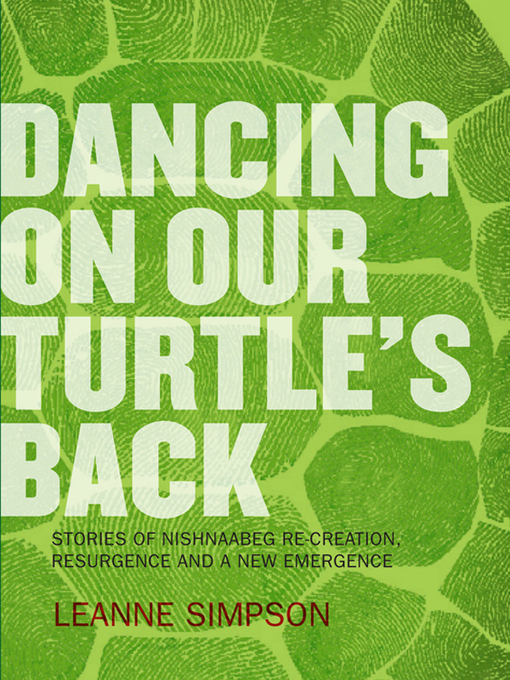Many promote Reconciliation as a "new" way for Canada to relate to Indigenous Peoples. In Dancing on Our Turtle's Back: Stories of Nishnaabeg Re-Creation, Resurgence, and a New Emergence activist, editor, and educator Leanne Betasamosake Simpson asserts reconciliation must be grounded in political resurgence and must support the regeneration of Indigenous languages, oral cultures, and traditions of governance. Simpson explores philosophies and pathways of regeneration, resurgence, and a new emergence through the Nishnaabeg language, Creation Stories, walks with Elders and children, celebrations and protests, and meditations on these experiences. She stresses the importance of illuminating Indigenous intellectual traditions to transform their relationship to the Canadian state. Challenging and original, Dancing on Our Turtle's Back provides a valuable new perspective on the struggles of Indigenous Peoples.
-
Description
-
Details

OverDrive Read
- ISBN: 9781894037686
- File size: 751 KB
- Release date: March 29, 2012
EPUB ebook
- ISBN: 9781894037686
- File size: 751 KB
- Release date: March 29, 2012
